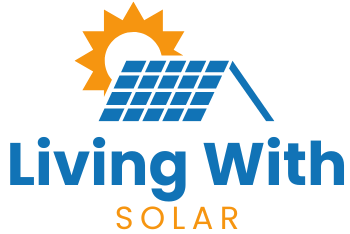By incorporating solar power into your business operations, you’ll find a reliable strategy to streamline expenses and enhance financial efficiency.
The potential for substantial cost reductions through solar energy is undeniable, offering a sustainable solution that not only benefits your bottom line but also contributes to environmental conservation.
Take a moment to consider the impact of embracing solar power on your business’s financial health and long-term sustainability.
Key Takeaways
- Solar power reduces electricity bills by up to 70%.
- Tax incentives like the Federal ITC offer up to 26% in savings.
- Lower maintenance costs and long-term savings exceed $20,000.
- Solar panels enhance property value and brand image.
- Energy independence and reduced reliance on grid electricity lower operational expenses.
Reduced Electricity Bills
If you’re a business looking to cut costs and increase sustainability, investing in solar power can lead to significantly reduced electricity bills.
By harnessing the power of the sun, you can generate your own clean energy and rely less on traditional utility companies.
This shift towards solar power not only helps the environment but also has a direct impact on your bottom line.
With solar panels installed on your business premises, you can produce electricity that offsets a portion or even the majority of your energy consumption.
This means you’ll draw less power from the grid, resulting in lower electricity bills month after month.
Additionally, excess energy generated by your solar system can be stored or even sold back to the grid, providing you with potential savings or additional revenue streams.
Tax Incentives and Rebates

Explore the enticing realm of tax incentives and rebates when you venture into the world of solar power for your business.
Making the switch to solar energy not only helps the environment but can also lead to significant financial benefits through various tax incentives and rebates.
Here are some examples to consider:
| Incentive/Rebate | Description | Eligibility | Potential Savings |
|---|---|---|---|
| Federal Investment Tax Credit (ITC) | Receive a tax credit of 26% of the cost of installing a solar energy system | Available for both residential and commercial properties | Significant savings on your federal taxes |
| State Rebates | Some states offer cash rebates for installing solar panels | Varies by state | Instant cash back upon installation |
| Accelerated Depreciation | Businesses can depreciate the cost of solar assets more quickly | Available for businesses that own solar energy systems | Lower taxable income for your business |
Increased Property Value
Enhancing your property’s value is a significant advantage that comes with investing in solar power for your business.
By installing solar panels, you can increase the market value of your property. Potential buyers or tenants are often willing to pay more for a property with solar panels already in place due to the long-term cost savings and environmental benefits they offer.
Moreover, solar panels can enhance the curb appeal of your business, making it more attractive to customers and investors.
The modern and sustainable image associated with solar power can set your business apart from competitors and position it as a forward-thinking organization committed to reducing its carbon footprint.
Additionally, as renewable energy sources become more mainstream, properties with solar panels tend to sell faster than those without, giving you a competitive edge in the real estate market.
This increased demand can translate into a higher resale value and better return on investment for your business in the long run.
Operational Cost Savings
Cutting down on operational expenses is a key benefit of integrating solar power into your business.
By harnessing the power of the sun, you can significantly reduce your electricity bills, thus saving on operational costs.
Solar panels generate electricity that can power your business operations, reducing your reliance on the grid and the associated expenses.
Maintenance costs for solar panels are minimal compared to traditional energy sources, allowing you to allocate your budget to other areas of your business.
Moreover, solar power systems have a long lifespan, providing you with consistent cost savings over time.
Additionally, many governments offer incentives, such as tax credits or rebates, for businesses that invest in solar energy, further decreasing your operational expenses.
Energy Independence

Achieving energy independence is a crucial goal for businesses looking to secure their operations and mitigate risks associated with fluctuating energy prices and supply disruptions.
By investing in solar power systems, businesses can generate their electricity, reducing their dependence on the grid.
This independence allows you to have more control over your energy costs, shielding your business from market volatility.
In addition, solar power provides a stable and predictable source of energy, ensuring that your operations continue smoothly even during grid outages or emergencies.
Energy independence also contributes to environmental sustainability by reducing your carbon footprint.
By producing clean energy on-site, you can decrease reliance on fossil fuels and lower greenhouse gas emissions.
This proactive approach aligns with corporate social responsibility initiatives, demonstrating your commitment to a greener future.
Furthermore, energy independence can enhance your business’s resilience and competitiveness in the market by fostering greater stability and control over your energy supply.
Embracing solar power isn’t just a financial decision but a strategic move towards a more secure and sustainable future.
Sustainable Brand Image
To cultivate a sustainable brand image, businesses can leverage the power of solar energy to showcase their commitment to environmental stewardship and corporate responsibility.
By incorporating solar power into your operations, you demonstrate a proactive approach towards reducing carbon emissions and promoting renewable energy sources.
This visible commitment to sustainability can resonate positively with environmentally-conscious consumers, investors, and stakeholders, enhancing your brand reputation and setting you apart from competitors.
Embracing solar energy not only reduces your carbon footprint but also sends a powerful message about your values and priorities as a business.
Consumers today are increasingly drawn to brands that prioritize sustainability and social responsibility, making solar power a strategic tool for enhancing your brand image in the marketplace.
Incorporating solar energy into your business operations is a tangible way to align your brand with eco-friendly practices, showcasing your dedication to making a positive impact on the environment.
This proactive stance can help strengthen customer loyalty, attract like-minded partners, and position your business as a leader in sustainability efforts.
Long-Term Financial Benefits
Considering the financial aspect, investing in solar power for your business can lead to significant long-term benefits.
By installing solar panels, you can drastically reduce or even eliminate your reliance on traditional energy sources, resulting in substantial cost savings over time.
As utility rates continue to rise, generating your own electricity through solar power can shield your business from unpredictable expenses and inflation.
Additionally, many governments offer incentives such as tax credits, rebates, and grants for businesses that invest in renewable energy, further enhancing the financial advantages of solar power.
Moreover, solar panels have a long lifespan, typically lasting 25 years or more with minimal maintenance costs.
This longevity ensures that your initial investment in solar power continues to pay off well into the future.
As technology advances and solar efficiency increases, your business can benefit from upgrades or expansions to your solar system, maximizing energy production and savings.
Ultimately, embracing solar power can provide your business with a stable and cost-effective energy solution for the long haul.
Conclusion
In conclusion, implementing solar power in your business can lead to significant cost savings, increased property value, and energy independence. With reduced electricity bills, tax incentives, and long-term financial benefits, solar power offers a sustainable and financially sound solution for businesses looking to lower operating costs. Make the switch to solar today and start reaping the rewards of a more efficient and environmentally friendly energy source.
Frequently Asked Questions
How Can Solar Power Affect My Business’s Insurance Premiums?
Switching to solar power for your business can potentially reduce insurance premiums. By demonstrating a commitment to sustainability and lower risk of power outages, insurers may offer discounts or lower rates to incentivize renewable energy adoption.
Will Installing Solar Panels Require Additional Maintenance Costs?
Yes, installing solar panels may require occasional maintenance costs, such as cleaning and inspections. However, these costs are typically minimal compared to the potential long-term savings on energy bills and environmental benefits.
Can Solar Power Systems Be Integrated With Existing Energy Sources?
Yes, solar power systems can be seamlessly integrated with existing energy sources. This integration allows for a more sustainable and reliable energy supply for your business. Consider the benefits of combining solar power with your current energy setup.
Are There Any Hidden Costs Associated With Solar Power Installation?
When considering solar power installation, be aware of potential hidden costs like roof repairs, equipment upgrades, and maintenance. Conduct a thorough evaluation to ensure you understand the full financial implications before making a decision.
How Do Solar Panels Impact the Resale Value of a Commercial Property?
Solar panels can significantly increase the resale value of a commercial property. They are seen as an attractive feature by potential buyers who value sustainability and lower energy costs, providing a competitive edge in the market.





